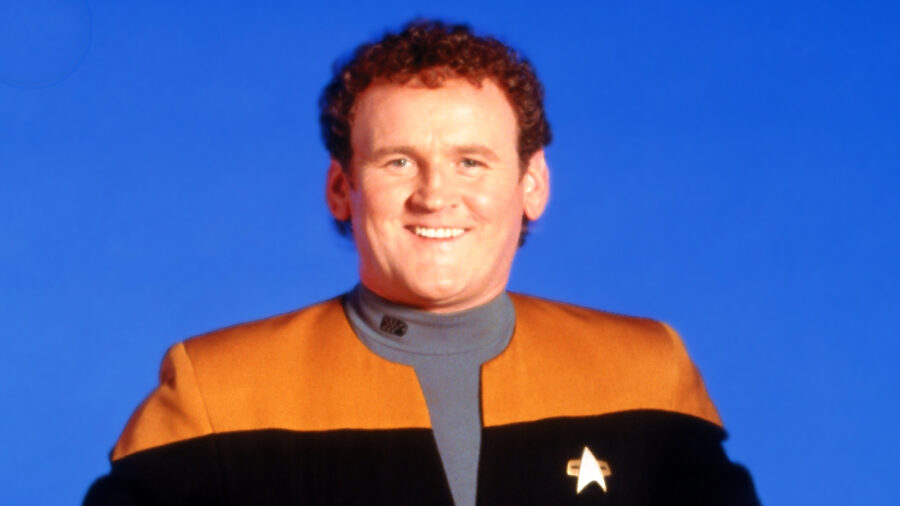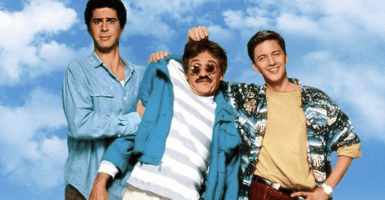Why Miles O’Brien Is The Most Important Person In Starfleet History
The Chief deserves to be remembered as one of Starfleet's greatest officers.
This article is more than 2 years old
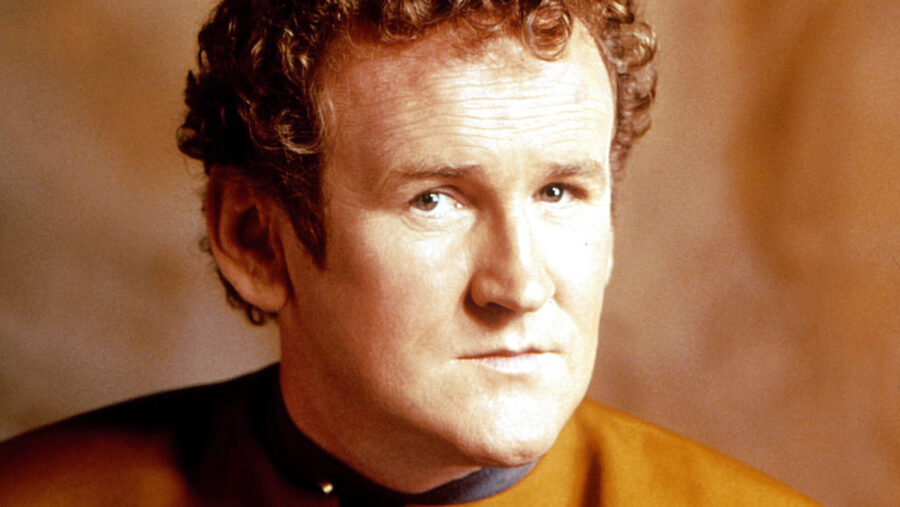
Miles O’Brien was recently posited as one of the most important people in Starfleet history. Star Trek: Lower Decks ended their third episode, “Temporal Edict”, on a scene in “the far future” where a classroom is learning about noteworthy members in the Federation. The teacher ends the scene with a joke that mentions Chief O’Brien as one of Starfleet’s greatest figures.
At first, this might just seem like a throwaway joke for Trekkies to giggle at, but it goes a lot deeper once you realize how the creators behind Star Trek: Lower Decks are making Star Trek dorky again and what a character like Miles O’Brien (as played by Colm Meaney) symbolizes for the show.
So, let’s look at both the in-universe and meta reasons as to why Chief Miles O’Brien might be the most important Starfleet officer of all time.
Miles O’Brien: The Original Lower Deck Crewman
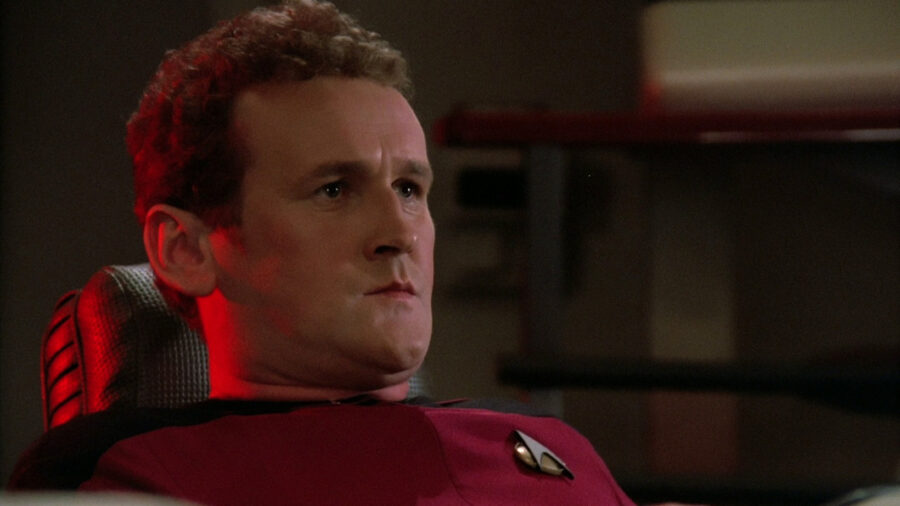
If you look at Miles O’Brien’s history, it makes perfect sense for a show like Star Trek: Lower Decks to hold him in such high esteem. O’Brien was introduced in Star Trek: The Next Generation as a somewhat recurring supporting cast member. He would often be the transporter operator in an episode and his workmanlike position endeared him to both fans and the creators of the show. When the time came for Star Trek: Deep Space Nine, O’Brien was chosen as the character that would act as that show’s Chief Engineer. Of course, this was a job where he’d be trying to repair and manage alien technology on the Cardassian space station, Terok Nor. Not a glamorous or particularly easy task.
Still, Miles O’Brien constantly did his job and often with little help in regards to time, materials, or assistance. And his personal struggles across Star Trek: Deep Space Nine are so horrendous that they have been cataloged in detail. Through it all, the Chief was always doing the impossible and putting in the hard work. All the while, he never attained the kind of prestige and adoration that those in command always achieve. It’s wonderful to see that the far future in Star Trek: Lower Decks gives the Chief the recognition he deserves.
And maybe that’s a sign for the hopefulness of the far future. In the “Temporal Edict” ending, we see that there is even a Borg child among the students. It’s clear that this future is a more integrated and positive future than even the seeming utopia of the 24th century. Maybe this means that the far future will be more likely to honor and memorialize the deeds of the working class than more obvious figureheads. As always, the best Star Trek ideas are about the future being a better place than the present. A future where someone like Miles O’Brien is seen as a historical hero is a good future in my book.
The Bigger Reason for That Statue
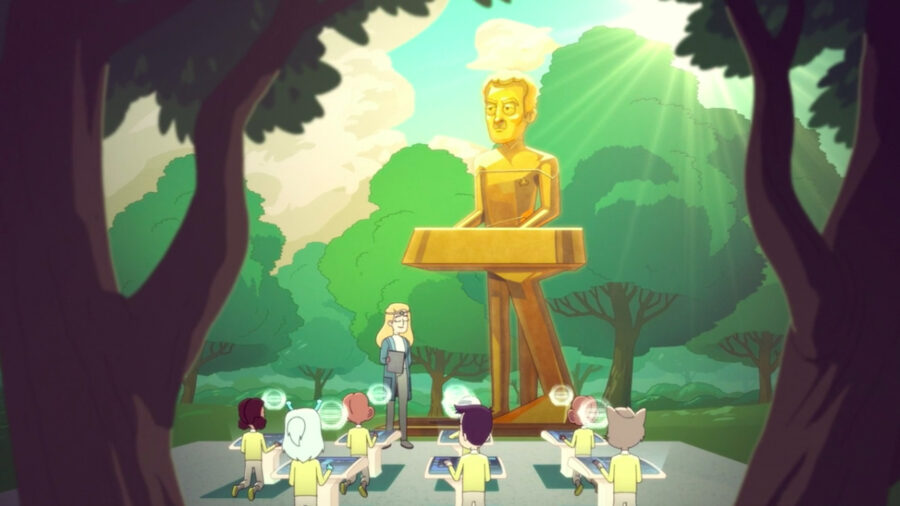
But, the real reason for Miles O’Brien being highlighted and praised at the end of “Temporal Edict” is another example of Star Trek: Lower Decks using deeper Trek lore as a storytelling and thematic springboard. The entire episode reintroduces the concept of “buffer time”, an idea introduced by Scotty in Star Trek III: The Search for Spock. Scotty tells Kirk that’s he’s always multiplied his estimated work time on a project by a factor of four. That way, Scotty and his crew always maintain a reputation for being ahead of the game.
“Temporal Edict” argues for the value of buffer time in regards to crew mental health and productivity, but the ending gag with Miles O’Brien also celebrates a character with no concept of something like buffer time. O’Brien never gave himself such leeway and was always working under the gun. His actual status as an engineering miracle worker isn’t because of manipulated estimates. The Chief really did perform miracles in scenarios that often required rapid creative thinking.
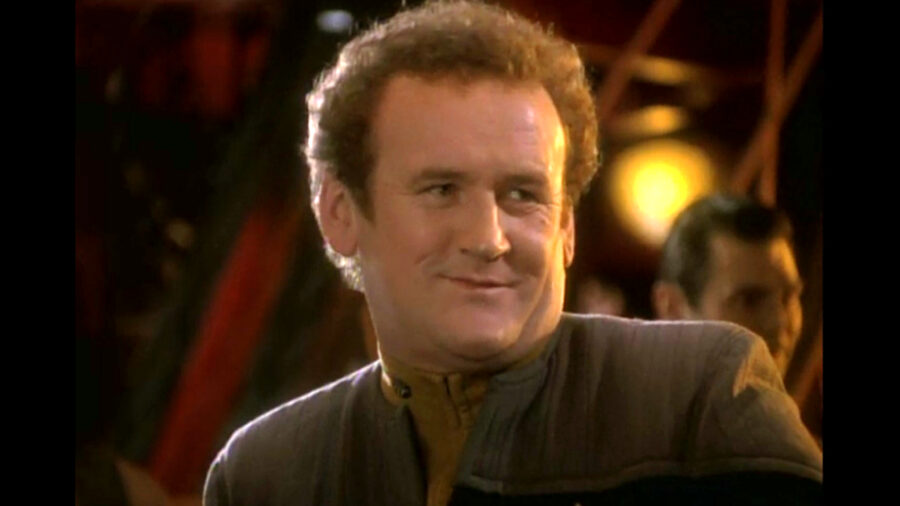
It’s also worth noting that Miles O’Brien is what’s known as a non-commissioned officer or a “noncom.” This means that O’Brien enlisted in Starfleet but did not attend Starfleet Academy. It’s an important distinction when we think about the kind of characters Star Trek: Lower Decks is trying to shine a spotlight on. These are the working class of Starfleet, and Miles O’Brien would clearly be a figure they admired. He didn’t view Starfleet as some grand adventure or a way to increase his rank and social status. Starfleet was a job. A noble one, but a job nonetheless. And O’Brien was someone who took pride in a job well done, even if other people didn’t realize the sweat that went into it.
That’s an attitude we haven’t really seen from Star Trek in a long time. The idea that a Star Trek show would single out Miles O’Brien as the most important person in Starfleet history is a testament to the heart of Star Trek: Lower Decks. It’s a show that wants to give acclaim and approval to the little people of Star Trek. That’s apropos since omnipotent alien being Q once called O’Brien, “one of the little people.” Now that little person is seen as Starfleet’s best and brightest. That’s a happy ending for a character that sorely needed one.
